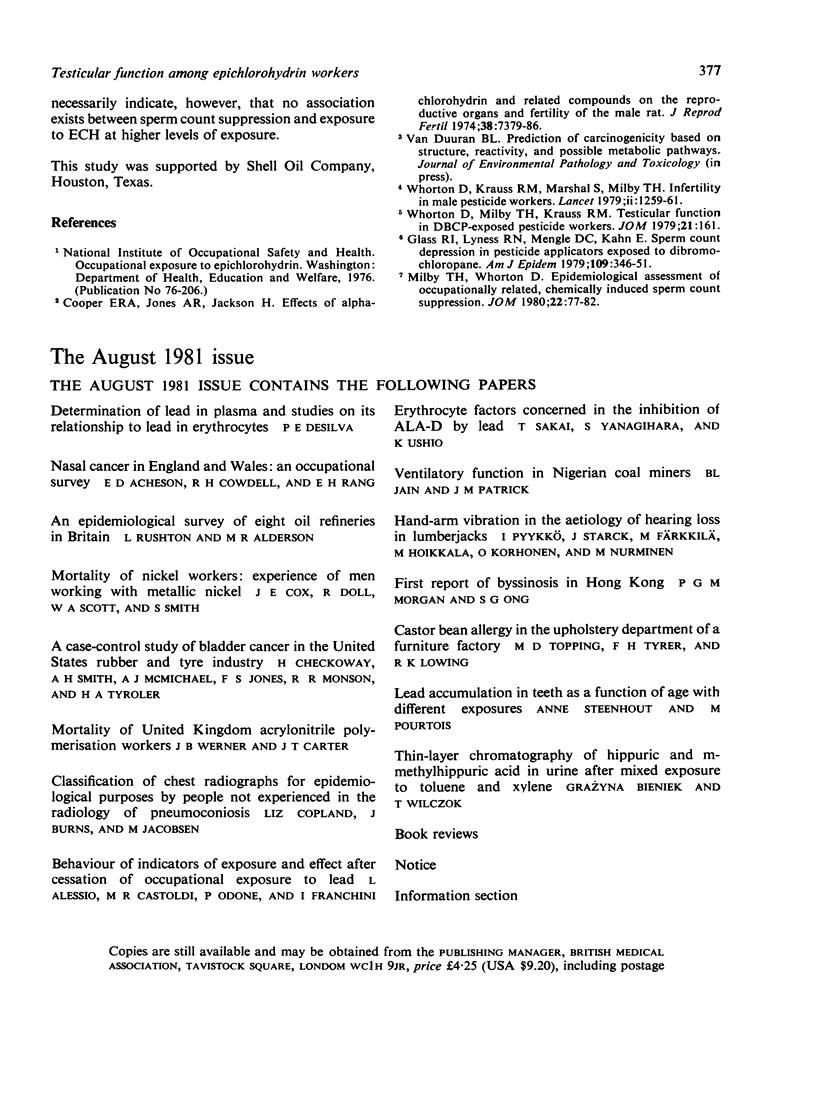Abstract
Epichlorohydrin (1,2-epoxy-3-chloropropane) (ECH) is a colourless liquid used in the production of insecticides, agricultural chemicals, epoxy resins, and many other productions. It is highly reactive and an alkylating agent suspected of possessing carcinogenic properties in man. The results of a clinical-epidemiological investigation to ascertain whether exposure to ECH may be associated with sperm count suppression among ECH production workers at two chemical plants are presented. Medical histories and physical examinations with special emphasis on the genitourinary tract were completed on each participant. Blood samples and three semen specimens were also obtained. Since no internal control group were available, the data arising from this effort were analysed for each plant (plant A, 44 men; plant B, 84 men) using a control group of 90 chemical plants workers unexposed to any agents known to be toxic to the tests who were included in previous studies. This study provides no evidence that exposure to ECH at the concentrations existing at the two plants studied is responsible for sperm count suppression.
Full text
PDF





Selected References
These references are in PubMed. This may not be the complete list of references from this article.
- Glass R. I., Lyness R. N., Mengle D. C., Powell K. E., Kahn E. Sperm count depression in pesticide applicators exposed to dibromochloropropane. Am J Epidemiol. 1979 Mar;109(3):346–351. doi: 10.1093/oxfordjournals.aje.a112687. [DOI] [PubMed] [Google Scholar]
- Milby T. H., Whorton D. Epidemiological assessment of occupationally related, chemically induced sperm count suppression. J Occup Med. 1980 Feb;22(2):77–82. doi: 10.1097/00043764-198002000-00003. [DOI] [PubMed] [Google Scholar]
- Whorton D., Milby T. H., Krauss R. M., Stubbs H. A. Testicular function in DBCP exposed pesticide workers. J Occup Med. 1979 Mar;21(3):161–166. [PubMed] [Google Scholar]



